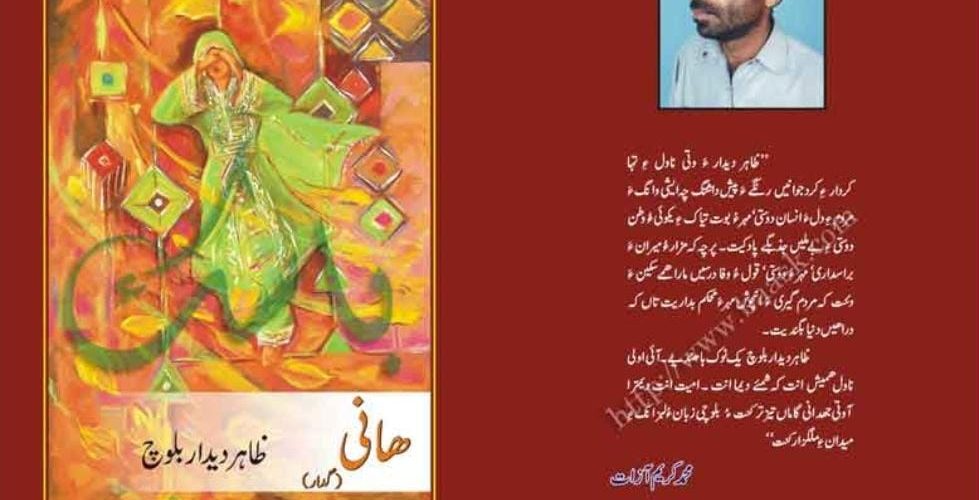Within the pages of Zahir Deedar’s “Hani,” a mesmerizing tale of Balochi society unfolds, delving into the complexities of birth and the societal customs that intertwine the lives of newborns. This captivating novel casts a critical eye on the traditions which restrict women and highlights the profound impact of promises made in a world driven by love and destiny all together.
The story commences with the unbreakable bond between two friends, Mazar and Meeran, whose lives take a poignant turn when Mazar becomes the father of a son and Meeran of a daughter. Embracing tradition, the families decide to engage the two infants, setting the stage for a profound exploration of love and the repercussions of predetermined paths.
Amidst the backdrop of their upbringing, a ravaging famine grips their village, compelling Meeran to seek refuge in the city, leaving Mazar to remain rooted in their homeland. This tragic event acts as a metaphor, symbolizing the unwavering love and devotion that the Baloch people possess for their native land, even in the face of adversity. It serves as a powerful testament to the resilience ingrained in their culture.
As the village recovers from the famine’s grip, Mazar finds solace working in the verdant gardens of Meer Suleman, an affluent and compassionate villager who yearns for a child of his own. When Meer Suleman lays eyes upon Mazar’s daughter, Hani, an unbreakable bond forms, and he assumes the role of her guardian, taking full responsibility for her upbringing. Recognizing the transformative power of education, he sends Hani to the city to pursue further learning, thus broadening her horizons and igniting her potential.
Simultaneously, Hammal, the grown son of Meeran, aspires to continue his higher education but faces financial hurdles. In an unexpected twist of fate, he is offered the opportunity to tutor Hani, whose foundational education requires reinforcement. As Hammal assumes the role of mentor, a tender love begins to blossom between the two young souls. Despite the disapproval of their families, their hearts remain steadfastly intertwined.
In a clash of promises and the weight of obligations, Meeran finds himself torn between his commitment to Mazar and the undeniable connection between Hammal and Hani. Likewise, Mazar grapples with honoring the pledge he made to Meeran while recognizing his daughter’s true desires. Unbeknownst to both fathers, destiny weaves its intricate web, guiding Hani and Hammal towards one another, fulfilling the promise that was made long ago.
Love, as it often does, transcends societal expectations. Hani and Hammal defy the confines of tradition and embark on a courageous journey of marriage. Returning to their ancestral village, they reveal their union to Meeran and Mazar, who, to their utmost delight, realize that the promises they made long ago have manifested in the happiness of their children. In a heartwarming conclusion, the families embrace their newfound joy and celebrate the transformative power of love.
Through “Hani,” Zahir Deedar reminds readers of the fragility of promises, particularly when it comes to influencing life’s pivotal decisions. Life is unpredictable, and circumstances can alter the course we once thought certain. This poignant novel encourages us to refrain from prematurely binding the destinies of our children and instead empower them to shape their own lives. Ultimately, “Hani” serves as a gentle call to embrace the ever-changing nature of existence and cherish the freedom to choose our own paths.








Add comment